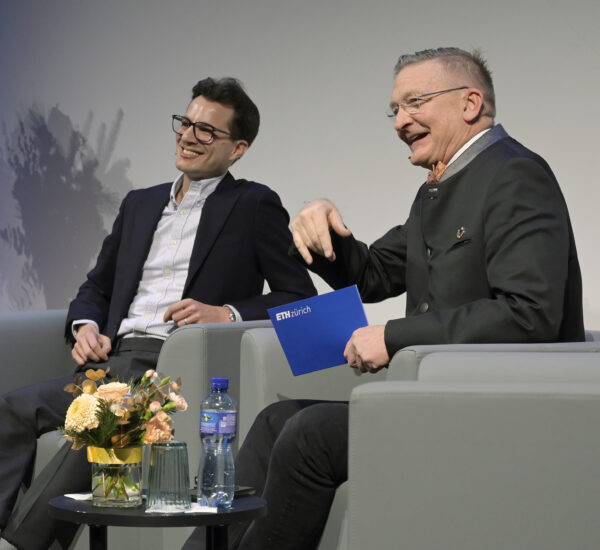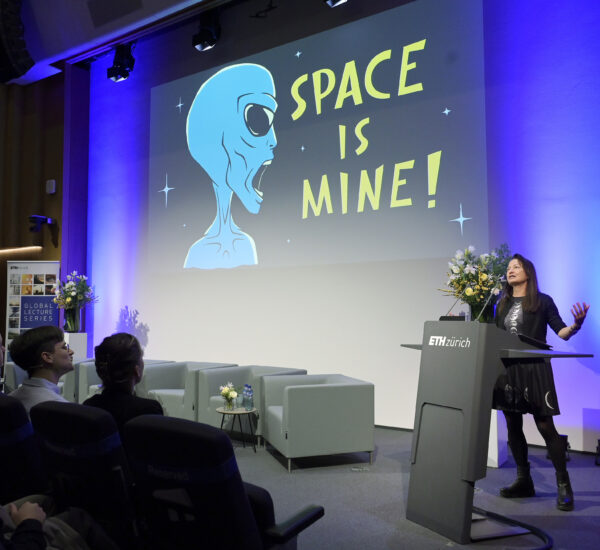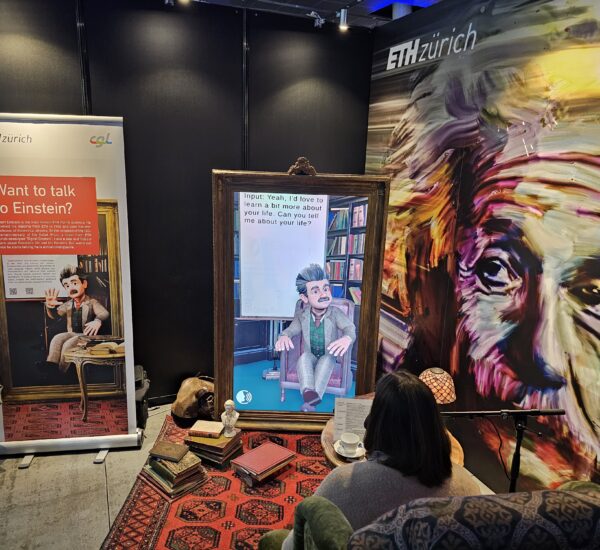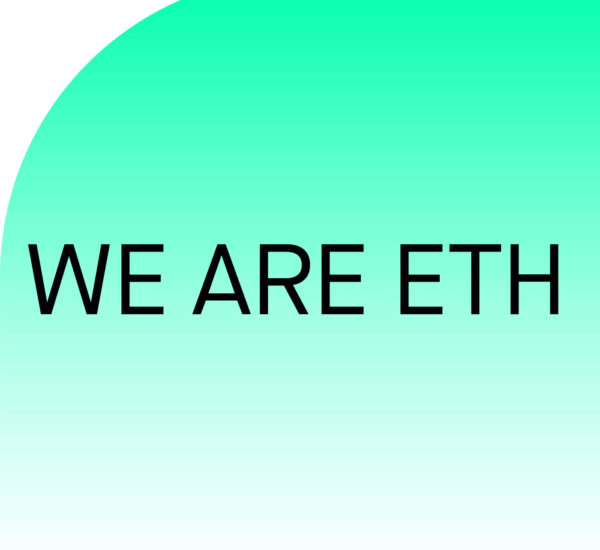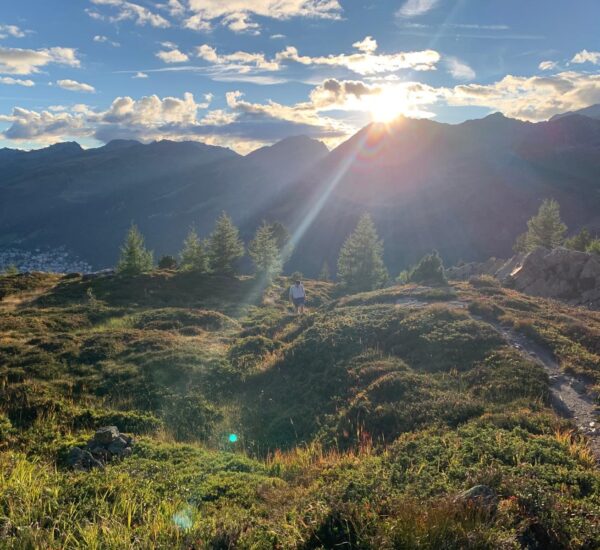At the Other End of the World: from ETH to New York
February 5, 2026
But how did this come about?
We — Defne Çetinkaya and Michelle Reinschmidt — both study architecture at ETH Zurich and attended Mariam Issoufou’s studio in 2024. Together, we developed a semester project that reimagined two ethnographic museums in Zurich at the “end of the world” — a world in which all acquired objects had been restituted.
In September 2025, we received the exciting news that our project had been selected for a panel discussion in New York. On 18 October 2025, we boarded a plane bound for JFK — excited, slightly nervous, and eager to discover what awaited us.


After breakfast on our first day, we took the subway from Brooklyn to Central Park. New York in the fall felt magical, and we must have said, “We can’t believe we’re here,” at least ten times. After a stop at the Guggenheim, we continued to Times Square — Michelle’s first time in the city made it a must.

Reception. Photo credits: Zahra’a Nasralla

The next day brought growing anticipation: the reception at the Swiss Consulate, which opened the exhibition Museums as Shared Spaces: Imagining New Possibilities and previewing the panel. Earlier, we had visited Mariam Issoufou Architects’ office and met Zahra’a for lunch. Meeting her in person and seeing Mariam again felt very special.
That evening at the Consulate, our nervousness quickly faded thanks to the warm welcome. The reception gathered a diverse group from the Swiss and international cultural scenes, and we found ourselves in many inspiring conversations. The ease of connecting with people truly lived up to New York’s reputation.

The following day — panel day — marked the peak of our nervousness and excitement, especially after learning the event was fully booked. We spent the morning strolling through Brooklyn Bridge Park, rehearsing and calming our nerves.
Later, at the Van Alen Institute, Mariam Issoufou opened with an inspiring keynote before we presented our project. The discussion that followed expanded into broader questions of architecture, responsibility, and the role of institutions in shaping cultural narratives.
What stayed with us most was the openness of the audience and the depth of the exchange. It was incredibly rewarding to see a student project spark dialogue beyond academia. The evening ended with happy faces having ice cream together with Zahra’a, her friends, and Jonathan, whom we had met through the event.


During the remaining days, we explored the city: walking the High Line, visiting the Whitney, eating bagels with Jonathan in Washington Square Park, and touring the UN with Loris from the Swiss Mission. Experiencing New York through such meaningful encounters made the trip truly special.
Looking back, this journey was not only unforgettable on a personal level but also a significant academic milestone. We are deeply grateful to the Swiss Consulate in New York, Professor Mariam Issoufou, Zahra’a, and ETH. The experience reminded us why we study architecture: to think critically, engage in dialogue, and imagine alternative futures — sometimes at the other end of the world.


Architects. Photo credits: Zahra’a Nasralla


